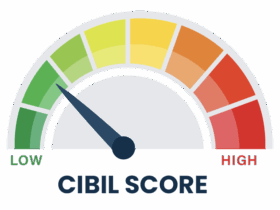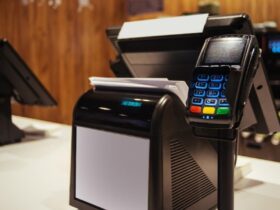A current account is a type of deposit account that is set up by business owners who deal with a considerably greater number of transactions daily. It is also known as a financial account.
If you make frequent transactions related to your business, then you can consider setting up your current account with your bank. You can simply visit your bank and ask them procedures and formalities to set up your current account.
The current account offers you a range of personalised features and benefits to suit your business’s needs and requirements. Current accounts enable you to make payments to creditors through the cheque facility.
As current accounts deal with high liquidity of transactions, usually, they don’t offer interest on the money deposited in the account. However, compared to savings accounts, the minimum balance requirement is high for current accounts. Having said that, the biggest advantage of having a current account is that you get to avail overdraft facility from your bank. You can take a loan for business purposes.
Here are some of the most fundamental features of a current bank account:
- Current accounts enable you to transact more compared to savings accounts but usually need a higher minimum balance.
- Current accounts are created to carry out a high volume of transactions like fund transfers, receiving cheques, cash deposits, etc.
- Current accounts can be handled by individuals, public or private companies, trusts, associations, and proprietary individuals.
- There are no limitations on the volume of transactions carried out daily.
- Failing to meet the minimum balance criteria might lead to fines and penalties.
- Be it savings accounts or current accounts, KYC is mandatory.
- You cannot have multiple accounts for a single business.
- The fundamental objective of a current account is to enable smooth transactions.
- These days, some banks offer interest on current accounts too.
- If you borrow from your current account, then you might be charged a small interest for that.
Advantages of a Current Account:
- Enables quick business transactions
- No restrictions on withdrawals
- No restrictions on money deposits, especially in the home branch. Make sure to select a bank that’s closer to your place
- Empowers individuals to make transactions via cheques, demand drafts (DD), and pay orders
- You can avail overdraft (OD) facility from the bank
- You can make use of convenient facilities like Internet and mobile banking
Documents required for opening your current account:
- PAN Card is a mandatory ID proof.
- Identity proofs: Passport, Aadhaar Card, etc.
- Address proofs: Voter identity card, Driving license, Aadhaar card, etc.
- If you are a company, then you need to have documents related to that as well.
How much money should you keep in your current account?
There is no set standard upper limit on the amount you can keep in your current account. Different banks have different rules.
But you must always make sure to maintain at least a minimum balance in your current account. Because if you go below your minimum balance, then you will attract fines and penalties. So be careful and cautious while opening up your current account! So, you can keep a minimum balance plus a comfortable amount depending on your transactions in your current bank account.













Leave a Reply